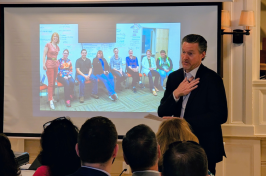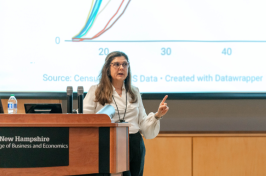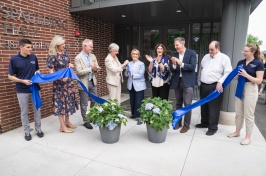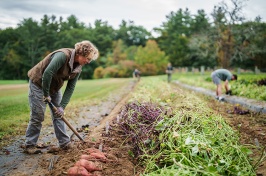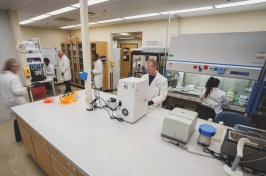Carsey Institute Researchers to Survey Oregon Residents on Views about Community and Forest
DURHAM, N.H. - Researchers from the Carsey Institute at the University of New Hampshire will survey 1,500 randomly selected residents in three Northeast Oregon counties this month about their views on community, forests, and environment.
The nonpartisan, noncommercial survey is part of the Community and Forests in Oregon (CAFOR) research project. The research team led by Joel Hartter, faculty fellow at the Carsey Institute and assistant professor of geography at UNH, is studying socio-economic and ecological conditions in the Wallowa-Whitman Ecosystem in eastern Oregon, an area that exemplifies the dynamics and challenges of forest-dependent rural communities in the West. Within the Blue Mountains in northeastern Oregon, the Wallowa-Whitman Ecosystem encompasses the Wallowa-Whitman National Forest, which includes 2.3 million acres and three adjacent counties: Baker, Union, and Wallowa in eastern Oregon.
"The Wallowa-Whitman Ecosystem provides a good example to examine the challenges and issues that many communities near public lands in the American West confront," Hartter said.
Questions on the telephone survey will ask residents about their views regarding forestry jobs, forest property subdivision, or possible risks to forests such as fire and insects. There also are questions about other challenges facing local communities. Some questions involve issues such as land management, climate, energy development (including wind power), or protection of wolves that have both national and local implications. All answers are confidential, and publications will focus on the statistical results.
Interviews should be completed by early October. A public report summarizing the survey results will be published this winter. Next summer, the CAFOR research team will return to Northeast Oregon for public presentations about the survey and other aspects of the study. Complementing this survey, the scientists are collecting detailed data on the region's forests, using both satellite imagery and ground data.
The CAFOR research is supported by a $400,000 grant through the Disaster Resilience for Rural Communities Program, which is part of the National Institute of Food and Agriculture program of the USDA. The aim of this program is to study how socio-economic and environmental changes impact resource-dependent rural communities.
Hartter's research team represents a diverse set of interests and disciplines. In addition to Hartter, the research team consists of Russ Congalton, professor of remote sensing and geographic information systems at UNH; Mark Ducey, professor of forest biometrics and management at UNH;Larry Hamilton, professor of sociology at UNH; and UNH graduate students Mickey Campbell and Dan Maynard of the UNH Department of Natural Resources and Forrest Stevens in the Department of Geography at the University of Florida. The research team is working with the UNH Survey Center and the Carsey Institute, along with Oregon State University Forestry Extension.
The CAFOR survey builds upon experience with the Community and Environment in Rural America surveys, described in earlier Carsey Institute reports, such as "Place Matters: Challenges and Opportunities in Four Rural Americas," which is available at http://carseyinstitute.unh.edu/publications/Report_PlaceMatters.pdf.
The Carsey Institute conducts policy research on vulnerable children, youth, and families and on sustainable community development. The institute gives policy makers and practitioners the timely, independent resources they need to effect change in their communities. For more information about the Carsey Institute, go to www.carseyinstitute.unh.edu.
The University of New Hampshire, founded in 1866, is a world-class public research university with the feel of a New England liberal arts college. A land, sea, and space-grant university, UNH is the state's flagship public institution, enrolling 12,200 undergraduate and 2,300 graduate students.
-30-
Latest News
-
June 25, 2025
-
June 16, 2025
-
June 6, 2025
-
May 15, 2025
-
May 14, 2025







